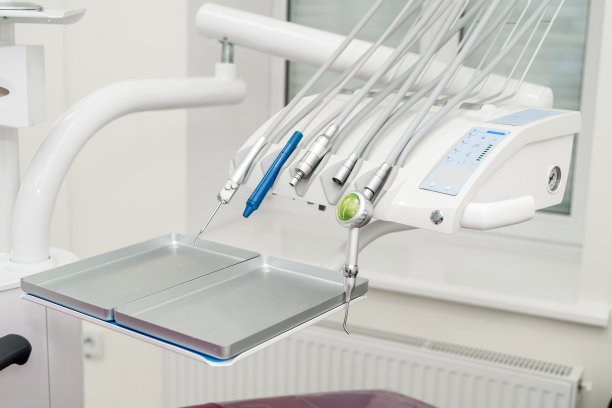Summary: After receiving a dental filling, it is essential to follow specific precautions to ensure optimal oral health and the longevity of the filling. This article outlines four critical areas to focus on post-treatment: dietary considerations, oral hygiene practices, monitoring for discomfort, and maintaining regular dental check-ups. By adhering to these guidelines, patients can maximize the effectiveness of their dental fillings and prevent future dental issues, keeping their oral health in top condition. This comprehensive approach will not only extend the lifespan of the filling but also promote overall oral well-being.
1. Dietary Considerations After a Dental Filling

After receiving a dental filling, it is crucial to be mindful of your diet to ensure the filling sets correctly and remains intact. In the initial hours following the procedure, it is advisable to avoid eating until the anesthetic has worn off completely. This helps prevent accidental biting of the cheeks or tongue.
Once you resume eating, stick to soft foods for the first few days. Foods such as yogurt, mashed potatoes, and smoothies are gentle on your teeth and minimize pressure on the new filling. Avoid hard, crunchy, or sticky foods, which may dislodge or damage the filling during the critical healing phase.
Additionally, steer clear of hot and cold beverages immediately after the filling. Extreme temperatures can cause discomfort and may affect the sealing of the filling material. Opt for lukewarm drinks during this period to ensure your comfort and protect your dental work.
2. Importance of Oral Hygiene Practices
Maintaining excellent oral hygiene is vital after getting a dental filling. Brush your teeth gently but thoroughly at least twice a day, taking special care around the filled tooth. Use a soft-bristled toothbrush to prevent irritation to the gum tissue surrounding the filling.
Incorporate flossing into your daily routine, as it helps remove food particles and plaque from the gaps between your teeth. Be gentle while flossing near the newly filled tooth, as aggressive flossing can disturb the filling and lead to complications.
Consider using an antiseptic mouthwash to further protect your oral health. This rinse can help reduce bacteria in your mouth, minimizing the risk of infection at the filling site. Regular mouthwash use aids in overall gum health, contributing to the long-term success of your dental filling.
3. Monitoring for Discomfort and Complications
After the dental filling procedure, it’s important to closely monitor your oral health for any discomfort or complications. Mild sensitivity to hot or cold temperatures is normal and should diminish within a few weeks. However, if you experience ongoing pain or discomfort, it could indicate an issue with the filling or underlying tooth structure.
Should you notice persistent sensitivity or pain, contact your dentist promptly. Ignoring these symptoms could lead to more significant dental problems, such as decay under the filling or an infection. Early intervention is crucial in preserving both the filling and the overall health of your tooth.
Additionally, keep an eye out for signs of the filling becoming loose or falling out, such as the sensation of gaps when biting. If this occurs, refrain from using the affected tooth until you can see your dentist. Addressing these issues quickly can prevent further damage and ensure a successful outcome.
4. Maintaining Regular Dental Check-Ups
Regular dental check-ups are essential in monitoring the condition of your dental fillings. Scheduling follow-up appointments with your dentist will allow them to assess the fillings integrity and catch any potential issues early on. A yearly or biannual visit is generally recommended for most individuals to maintain optimal dental health.
Your dentist can also provide personalized advice on your oral hygiene practices and diet based on your unique dental history and needs. These professional insights can help you make informed decisions regarding your oral care and enhance the longevity of your dental restorations.
Furthermore, professional cleanings conducted during these check-ups will help prevent plaque build-up and reduce the risk of decay around the filling. Investing in regular dental visits is a proactive step towards lasting oral health and the maintenance of your smile.
Summary: The precautions taken after receiving a dental filling are essential in prolonging the life of the filling and promoting superior oral health. By considering dietary choices, maintaining good oral hygiene, monitoring for discomfort, and committing to regular dental check-ups, patients can set themselves up for success in their dental care journey. Implementing these practices will not only protect the investment in dental fillings but also contribute to long-term oral wellness.
This article is compiled by Vickong Dental and the content is for reference only.
Vickong Dental
Vickong Dental is a large medical group established in Hong Kong in 2008 by professors from well-known medical universities in Guangdong and Hong Kong, as well as medical doctors from key national '985' universities (including Master's supervisors and senior professors). The chain of branches brings together expert dentists with PhDs and Master's degrees from Hong Kong and Mainland China, committed to providing high-quality dental treatment.
"Vickong Dental Practices the University Motto of 'Healing and Serving Society,' with a Stable Operation for Sixteen Years. It Has Been honored with Hong Kong Enterprise Leaders's Choice,' and is a Global Trusted Implant Center for the Nobel Implant System. Recommended by Hong Kong Metro Broadcast and Guangdong Television, it Serves Customers from Over Thirty Countries and Regions, Gaining the Trust and Favor of Citizens from the Guangdong-Hong Kong-Macau Greater Bay Area and Surrounding Cities.

Thousands of customers' unanimous praise
The most recognized and highly recommended dental service by customers in the Guangdong-Hong Kong-Macau Greater Bay Area
We Ensure You Receive Detailed Care and Attention Here
Hong Kong standards, Shenzhen prices, Your Trusted English-speaking dentists

Vickong Dental Medical-Grade Instrument Disinfection Process
Vickong Dental Medical-Grade Instrument Disinfection Process

Vickong Dental Chain: A Warm and Comfortable Environment for Treatment






Appointment Hours

Q&A
Why choose Vickong Dental?
Vickong Dental practices the university motto 「Medicine to Benefit Society」, with each branch bringing together highly qualified dentists with doctoral and master’s degrees from Hong Kong and the Mainland, and has maintained seventeen years of steady operation。Recipient of 「2024 Hong Kong Enterprise Leaders Brand」, 「2025 Hong Kong Enterprise Leaders Brand」, a Nobel Biocare Global Trusted Implant Center, and a brand recommended by Metro Radio Hong Kong and Guangdong TV。
To date, we have served customers from more than thirty countries and regions,earning exceptionally high word-of-mouth recognition and trusted recommendations from residents across the Guangdong-Hong Kong-Macao Greater Bay Area and surrounding cities
We have eight major branches in Zhuhai、Shenzhen,and a consultation and service assurance center in Hong Kong,so you can book a free consultation at any time for any questions,which is very reassuring.
If I do not accept the quotation after the CT scan, will I be charged??
No! As long as the actual treatment has not started, you will not be charged any fees.
Will there be any additional charges during the treatment process?
No, there won’t be any additional charges. Before treatment begins, we will clearly explain the treatment plan and its corresponding fees. Only after the patient agrees and signs the consent form will we proceed with the dental service.
Can I pay in Hong Kong dollars?
Yes. Vickong Dental accepts payment in Hong Kong dollars. The amount will be converted based on the exchange rate of the day, and the applicable rate will be clearly communicated to you in advance.
Can I reschedule my appointment at any time?
Yes. Please contact us via **WeChat** or **WhatsApp** as early as possible, providing your original appointment time and details, along with your preferred new date and time slot for rescheduling.













